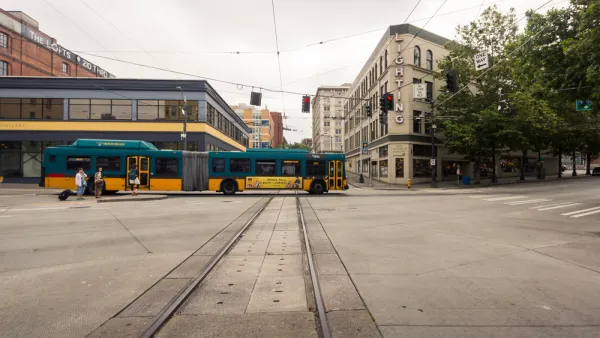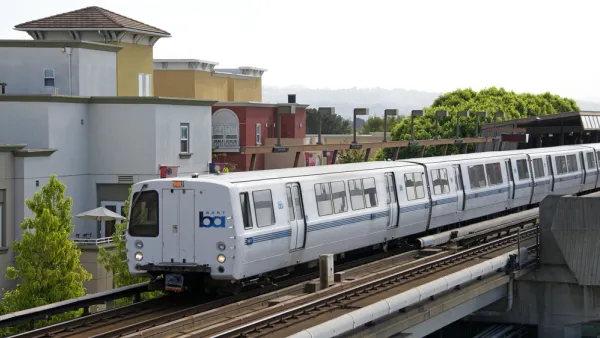After voting to override Governor Jay Nixon's veto of an income tax cut, legislators agreed to allow voters to determine whether to increase the state sales tax by .75% in November for ten years to increase funding for transportation programs.
Mirroring what's happening on a federal level, it's "anything but a state gas tax increase" when it comes to raising needed funds for transportation programs in Missouri. The state gas tax of 17.3-cents per gallon, sixth lowest in the nation [PDF], hasn't been raised for 18 years, according to the April, 2014 chart from the Institute on Taxation and Economic Policy (PDF).
While transportation sales tax measures have become more popular since Arkansas voters overwhelmingly supported a measure in Nov., 2012, how voters view a sales tax increase associated with an income tax cut is yet to be seen. "Opponents argued that lawmakers were sending mixed messages by cutting taxes with one vote and asking voters to increase taxes with another," writes Rudi Keller, statehouse reporter for the Columbia Daily Tribune.
"I think that message is going to come out loud and clear, and what it is going to be is we are going to turn this down," said Rep. Bill Otto, D-Maryland Heights.
Adds Virginia Young of the St. Louis Post-Dispatch, "Critics say sales taxes are hardest on low-income people because a higher percentage of their income goes toward buying essential items." Poorer residents are more likely to pay little of no income tax, thus they are less likely to benefit from the income tax cut.
A far less popular approach would be to allow voters to increase income taxes for transit, as some in Indiana will decide in November.
"Missouri currently funds transportation programs with a combination of fuel taxes, registration fees and sales tax on vehicles." Adding a general sales tax to the mix would detract from the "user fee" approach, though other states, most significantly Virginia last year, made the change. Other states have resorted to wholesale fuel taxes as opposed to general sales taxes.
Based on current sales tax receipts, the measure would raise approximately $540 million each year, with 10 percent set aside for city and county governments. The remainder would pay for highways, mass transit, ports, airports and bicycle and pedestrian transportation.
The bi-partisan legislative vote calls for a "November statewide ballot unless Gov. Jay Nixon decides to put it before voters in August. The proposed constitutional amendment would impose the tax for 10 years, with automatic votes for renewal every 10 years," writes Keller.
FULL STORY: Transportation sales tax to go on Missouri ballot

Analysis: Cybertruck Fatality Rate Far Exceeds That of Ford Pinto
The Tesla Cybertruck was recalled seven times last year.

National Parks Layoffs Will Cause Communities to Lose Billions
Thousands of essential park workers were laid off this week, just before the busy spring break season.

Retro-silient?: America’s First “Eco-burb,” The Woodlands Turns 50
A master-planned community north of Houston offers lessons on green infrastructure and resilient design, but falls short of its founder’s lofty affordability and walkability goals.

Test News Post 1
This is a summary

Analysis: Cybertruck Fatality Rate Far Exceeds That of Ford Pinto
The Tesla Cybertruck was recalled seven times last year.

Test News Headline 46
Test for the image on the front page.
Urban Design for Planners 1: Software Tools
This six-course series explores essential urban design concepts using open source software and equips planners with the tools they need to participate fully in the urban design process.
Planning for Universal Design
Learn the tools for implementing Universal Design in planning regulations.
EMC Planning Group, Inc.
Planetizen
Planetizen
Mpact (formerly Rail~Volution)
Great Falls Development Authority, Inc.
HUDs Office of Policy Development and Research
NYU Wagner Graduate School of Public Service



























